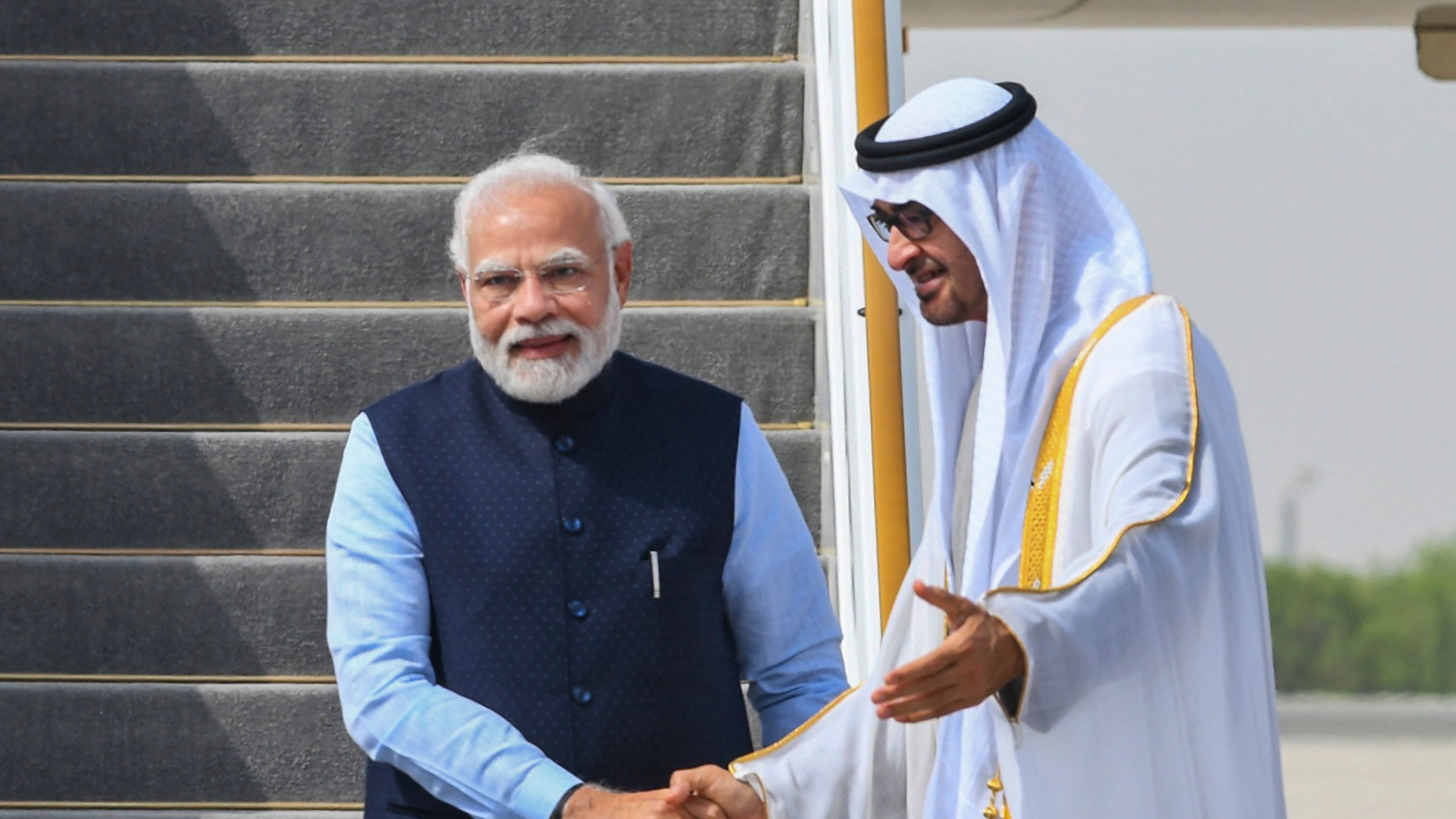
Political scientists have known for long that procedural democracy and a liberal State with freedoms and tolerance don’t necessarily coincide; one can exist without the other. Economists, too, know that without the freedom to pursue our aspirations, economic growth will not last too long, as the communist world found out.
India’s wise founders chose to become a liberal, secular democracy with civil liberties for all its citizens. It is this which has kept our diverse country united, and its citizens free and peaceful. The lessons from our friends is that we must continue on this path.
The United Arab Emirates (UAE) and Japan are two of India’s closest friends and partners for decades now. Both are developed countries; however, when they began their nation-building journey, both were poor developing Asian countries, and things could have gone awry in more ways than one.
Japan’s Ascent
As is usually the case, both their ascents began with a crisis. On a humid July morning in 1853, Japan traversed several centuries thanks to a Sturm und Drang show by a US Naval Commodore and his battleships. Rudely midwifed from centuries of isolation under the Tokugawa Shogunate to the age of steam, the Japanese ruling classes were thrown into turmoil. The result of that churning was the restoration of power with the Emperor Meiji and the Charter Oath.
In 1868, Japan’s emperor promulgated a remarkable five-point charter which was the consensus of Japan’s elite and would propel it to become the first industrialised nation outside the West.
Among its promises was to set up deliberative assemblies, unite the various elements of Japanese society, all of whom had the right to pursue happiness, end feudalism and ‘evil customs of the past’, and seek knowledge wherever it was to be found in the world. Not all promises were immediately or fully implemented, but enough was done to transform Japan and lay the foundations for it to become what it is today.
The Japanese understood that not everything in their civilisation and religion was good, big sacrifices had to be made to preserve independence, and become prosperous. Among these changes were social unity of all sections, rational and scientific thought over superstition, and an openness to the world in knowledge and culture. Rising ultra-nationalism would waylay Japan in the first half of the twentieth century, but when the time came for renewal after the defeat of World War II, Emperor Hirohito again remembered the Charter Oath and its modernising, humane, and democratic impulse as the founding moment that modern Japan must return to.
This morphing of its aggressive nationalism into a democratic liberalism which pursues freedom and prosperity for all its citizens led to Japan’s ascent.
UAE’s Rise
The seven sheikhdoms that constitute the UAE, formerly known as the Trucial States, had been British protectorates since the 19th century, like much of the Gulf. The moment of crisis arrived when the British announced the intention to withdraw all their forces from east of the Suez, in 1968.
Even though Sheikh Zayed, the ruler of Abu Dhabi, offered to compensate Britain fully for its deployments, it refused, and hectic parlays among the emirates began. Although there was barely any oil revenue in the other emirates, Sheikh Zayed had the foresight to see that alone they would all fall prey to outsiders and united they could stand independent. He chose to share the wealth among the other emirates by funding the federal structure and directly subsidising some of the smaller emirates. Sheikh Rashid, the ruler of Dubai, also understood this, and wisely agreed to be Vice-President in the new union.
Abu Dhabi struck oil in the early 1960s, but this could have led to the natural resource curse found in many other places. What helped was a flat tribal social structure, small population, and sagacious leadership. As soon as there were sufficient funds, these were deployed towards health, education, housing, and roads.
From 1969 onwards, Dubai too struck oil, but this was not sufficient to transform it. Sheikh Rashid deployed the meagre revenues in infrastructure, and more importantly embarked on a policy of economic and cultural openness and tolerance. He realised that without the social, religious, and economic freedom that Dubai offered, its transformation would be impossible in a neighbourhood crowded with competitors.
At its founding, the UAE peacefully handled the Abu Musa incident with Iran and the Buraimi incident with Saudi Arabia without being caught up in nationalism. Since then, the UAE has maintained a careful foreign policy balancing the United States, China, Iran, Iraq, Saudi Arabia, Pakistan, India, and now Israel in a volatile neighbourhood.
It has continued to maintain a policy of religious tolerance with the building of a large Hindu temple in October 2022, and the recent inauguration of the Abrahamic Family House in Abu Dhabi with a synagogue, church, and mosque in the same complex, while the number of visitors from Israel in 2022 crossed 150,000. In late 2022, the UAE also announced the passing of a law that would allow non-Muslim expatriates to follow the personal law of their native country with respect to divorce and inheritance.
The lessons for India are unmistakable.
(Mohsin Raza Khan is Associate Professor, Jindal School of International Affairs, and Executive Director, Centre For A New South Asia.)
Disclaimer: The views expressed above are the author's own. They do not necessarily reflect the views of DH.